Book Reviews by Genre: Science Fiction
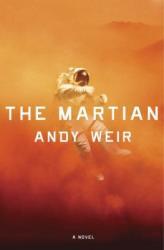
The Martian, by Andy Weir, is a near-future realistic fiction novel. The base plot is Mark Watney, a botanist, is a part of the Ares 3 Mission, the NASA Mars Program. During an emergency take off, Mark is inadvertently left behind and assumed dead. However, this is not the case. Now Mark must find a way to survive alone on Mars, a planet trying to constantly kill him. Will he survive and make it back home? Read to find out. Even if you have seen the movie, read the book. The movie is very good at staying true to the book, but the book will still blow you away. *There is some adult language, so I would recommend this book for teens and adults.*
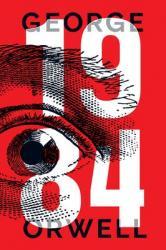
1984 by George Orwell is about a London where thought, speech, press is no longer free because it is all controlled by Big Brother and his Party. Every movement, gestor, spoke word is closely monitored by telescreens, hidden microphones, and cameras then reported to the Party. If you are found guilty of action or thought against the Party, you disappear. The Party controls everything. The protagonist, Winston Smith, a Party member who doubts the Party. The author does a fantastic job describing a place without freedom and the anxiety of living in it. Orwell makes the world come to life and makes you feel like it could happen. Personally, I feel like I could connect to the protagonist and the world. This book was quite unpredictable but easy to follow. All in all, It's a fantastic read, and I would recommend it with a 5 out of 5 stars.
Grade: 9
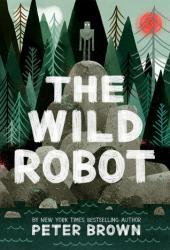
The Wild Robot is about a robot who is stranded on an island after a hurricane wiped out the boat that was bringing 500 robots to work. At first, the robot is viewed as a monster and is avoided. As she continues to try and figure out how to survive on the island, the robot accidently squishes a family of geese, but one baby goose survives. Realizing that the robot squished the baby's family, she adopts the baby so that he can survive. Because she had no idea how to take care of a goose, she asks for help. All of the animals pitch in to help and throughout the journey, the animals realize that she is not a monster and the become friends.
I loved this book. It drew me in within the first 2 chapters. It did get a little boring in some parts, but other than that it was an awesome book. I would rate it about a 9/10.
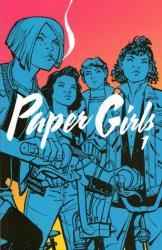
The first volume of Paper Girls introduces the four main characters, middle school girls in the 80s that deliver newspapers. The story begins with Erin, the new paper girl, and follows her as she meets the other three girls. After finding a mysterious capsule, they discover that the world seems to be ending when the sky changes and monsters appear in the sky. They cannot find any other person from their small town and eventually discover that many of the town's citizens simply vanished. The graphic novel follows the girls as they navigate this doomsday situation and their discourse over who they should trust. It begins in the 80s offering middle school characters reminiscent of many movies from the 80s, while setting up a mystery and the supernatural backdrop the rest of the story sets out to explore. Vaughan indicates that something large or even sinister might be behind the previous events, creating a compelling and unique mystery. Along with the incredible storytelling, the art in the novel is phenomenal, but the coloring really makes the book standout and is immensely pleasing to look at. Paper Girls is definitely one of my all time favorite series, and the first volume introduces the unique world of Paper Girls and its characters incredibly well. Reviewer Grade: 11
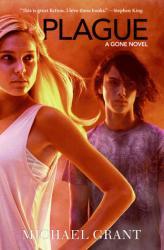
In the fourth book in the Gone series, Plague, Michael Grant spins an amazing tale of fear and danger as the Darkness once again threatens Perdido Beach and those still alive must do anything in their power to stop it. The horrors of Lies are gone but, the children’s newfound solidarity is challenged when they are threatened by a plague and carnivorous insects that challenge even the most powerful of the mutants. These blights leave no one unscathed and the reader is again immersed in a frightening and chaotic world where nothing is certain. Plague is guaranteed to satisfy science fiction readers and anyone who enjoyed the first three books is guaranteed to love this one.
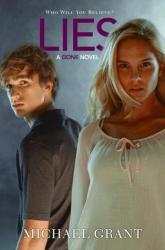
Lies, the third book in the Gone series by Michael Grant is another riveting story. Filled with mystery, intrigue, and Drake, the tentacle-wielding psychopath who is back for vengeance. The anti-mutant sentiment has grown, and full-scale violence is not far behind. Now only the wits of Sam, Astrid and their loyal friends can keep the children in the FAYZ alive and unharmed. But this will be no easy feat, lies spread by those who claim to be prophets have filled the ears of many and the zealots are capable of anything and they threat they pose is greater than all others. Lies is an amazing combination of the best parts of the first and second books in the series and puts a sense of dread in the reader as if they were living through the terror of the FAYZ. I would recommend it to anyone who enjoyed the first two books, this novel follows the same great storytelling style.
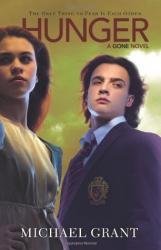
In Hunger, the second volume of Michael Grant’s Gone series, the bleakness of the FAYZ sets in as anti-mutant sentiment rises and conflict seems inevitable. Hunger runs rampant through Perdido Beach and famine is not far away. However, these problems fade into the background when an evil voice begins to speak to some of the children, trying to persuade them to do various tasks. This novel does not sugarcoat the difficulties of survival and the resulting story is a supernatural version of Lord of the Flies which snares the reader in an amazingly complex and mysterious universe. I found myself imagining that I was a character in the events and could picture many of the fantastical elements of the story with great detail, as if I had seen them firsthand. I would recommend this book to anyone who enjoyed the first novel in the series, Gone, and who enjoys survival novels like Hatchet.
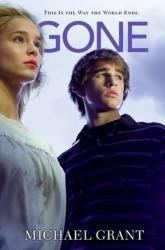
The Sci-fi novel Gone by Michael Grant is an amazing story of ingenuity and intrigue wrapped up into a young adult novel that combines the best elements of classic fantasy and science fiction. It follows the children in Perdido Beach California when everyone over the age of 15 vanishes and those that remain are trapped inside an opaque dome that surrounds the town. To make matters worse, some of the children start to develop superpowers and not everyone gets along. The children must work together to survive what is coming next… and they are definitely not ready for it. Gone is the perfect book for anyone who enjoys science fiction and who enjoys survival stories like Hatchet.
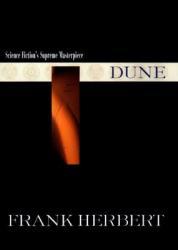
I chose to read Dune in anticipation of the coming movie, and as a much appreciated suggestion from my father. Dune follows the adventures of a young boy Paul as he enters manhood. He fights to keep the planet of Arrakis, and then goes on to fight for the title of emperor. It addresses a group of people, the Fremen and their religion of turning Arrakis, the desert planet, into a beautiful land through terraformation. This book draws you in and keeps you hooked, telling a story of becoming a man, while also making it a book worthy of praise, always surprising you with one twist or another.
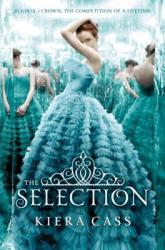
The Selection by Kiera Cass, is the first book in The Selection series. I have read this book multiple times for it is one of my favorite stories. With intriguing twists, the story carries you through the story of America and her journey into the unknown. While this story has many parts that have you on the edge of your seat, I also found myself feeling scared, angry, happy, sad, and many more emotions. With an interesting love triangle, the romance parts are what keep you drawn in. A book has never stood out to me in the way this story has.
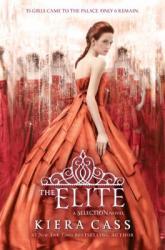
The Heir by Kiera Cass is the second book in the series The Selection. While this is one of my favorite series, this book is my least favorite of the three books. Even with turning twists and unnerving events, I feel the story did not get too far along with the plot. This book was still very well written and gave us a backstory on many characters. Although it was my favorite book, I highly recommend the read for it will help readers understand the third and last book of the series. Overall, this book was thought out well and brings many new emotions to the readers.
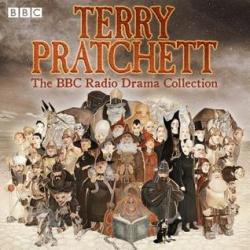
Sadly, I wasn't impressed with this, as a radio drama or an audio version of Pratchett's work. For Pratchett's Discworld books, this is definitely not an alternative to audio books of these novels. As a radio drama, the abridgment of the books is limited almost exclusively to sections of dialogue. The narration and storytelling background sounds aren't enough to allow the listener who hasn't already read or listened to the books to understand more than the basic plot. I was really surprised by this one, because BBC usually does such good work.
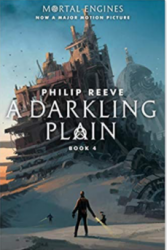
With the way Infernal Devices ended, I immediately knew there had to be a fourth book to finish this unique series. Few books resolve their respective series as well as A Darkling Plain does, which I can appreciate. In fact, the final epilogue was as beautiful as it was tragic. Along the way, the little loose ends tie up nicely so that all the characters are given some closure—whether or not they deserve it.
I wasn't wild with the time-skip tactic that Infernal Devices used since it basically split this series into two larger stories. Mortal Engines and Predator's Gold covered Hester and Tom's relationship, while the last two books covered their daughter's adventures. Of course, I was shocked with the ending of Infernal Devices, which did get an explanation in this book, even if it lessened the impact of that plot twist. That being said, some of the characters' fates were foreshadowed well ahead of this book, which left their ultimate fate somewhat anti-climactic.
Overall, I enjoyed how the idea of mobile cities eating each other in an evolutionary survival of the fittest came to its logical conclusion in this book. It's such a peculiar concept that was thoroughly explored in the previous three volumes so that this book could wrap up this phase in the post-apocalyptic timeline with enough room to give some hope for a future. After all, I have yet to run across a science fiction series that combines so many tropes so well and manages to conclude its complicated plotlines in such a satisfying way.
A satisfying ending of a unique series, I give A Darkling Plain 4.0 stars out of 5.
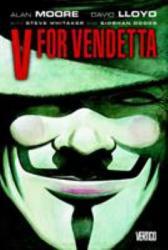
V for Vendetta follows V as he fights against an authoritarian government and trains a successor. The book questions the cost of losing art, literature, and beauty in an attempt to create complete control over society. The art adds another dimension to the story, and the colors used in V's house compared to the outside world emphasize the underlying message. V's character is captivating because he possesses such knowledge and culture yet brings destruction. This leads readers to consider the necessity of violence to preserve culture. V's mask holds similarities to Guy Fawkes', and certain actions between the two are also similar, adding historical parallels to the story. V's strong ideals and actions to back them up lead him to become the face of a revolution but at what cost?
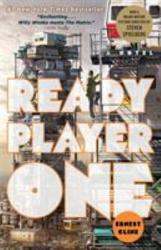
Ready Player One, a book by Ernest Cline, takes place in a dystopian future in 2045. The majority of the population spends most of their time inside a massive VR MMOSG, massively multiplayer online simulation game, called the Oasis. When the billionaire creator of the Oasis died, he left clues for an Easter Egg that he had hid in his game, and the first one who finds it gets his entire fortune. This story is about the adventure of Wade Watts, a kid from the Stacks in Columbus, Ohio, as he searches for that egg. This book is amazingly written, and you will be wanting to know what happens next as you read. You may have seen the movie, but the book is a masterpiece, the story is much richer, and definitely worth the read!
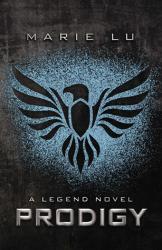
Prodigy is the second book in the Legend trilogy and it is just as enticing as the first. I am obsessed with this plot and again would recommend it to anyone because of the intense romanticism and thrilling fights. Not to forget, the Republic (where the main character lives) is undergoing a pandemic of its own virus, which very much connects to the issues we have faced in 2020 and now 2021 as well. This book wouldn't make sense if you read it before the first book in the series, but it has gorgeous writing nonetheless. There are so many layers to this book, especially because former background characters are being included and are now essential to the storyline. With many book series, the writing starts to lose interest or just depreciates, but absolutely not in this series. And after this book, it gets even more alluring.
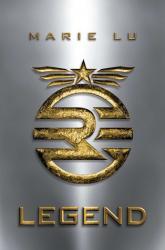
I read the first book of the Legend trilogy (Legend) for a school summer reading assignment, but I fell in love with it and finished the series of books. I would recommend this book to anyone because it is easy to understand, and very entertaining. This was written from the first-person point of view, but each chapter switches off between the two main characters, who are also the novel's love interests. This unique writing style allows the readers to get even more background info than if it was told by one single character. Not only is there an interesting romance twist, but there are thrilling fighting scenes and plenty of unexpected deceit. This is perfect for any gender and anyone from the age of 12+. When reading, I enjoyed this with another friend who also fell in love with the plot and read the whole trilogy, so if thrilling romance books are your thing, try this book.
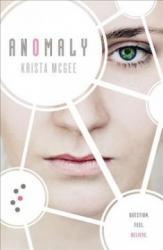
"Anomaly" a Christian dystopian novel grabs a reader's attention quickly. Thalli, the main character, is being chased by The Ten, a group of scientists who are trying to annihilate her. According to The Ten, Thalli is considered an anomaly and is dangerous to their current society. Through many trials, she has learned about the Designer from a friend named John. He shares with her that she was made to be like this and that she has been being lied to her whole life. She then realizes that she needs help; help that cannot come from humans. She needs the Designer's help. With some help from a few friends, Thalli tricks the ten scientists into thinking that they have cued her, but it doesn't work. They find out that she was tricking them. The Ten then decide to annihilate them all. As Thalli bravely volunteers to go first, her friends try to rescue her. Will she make it to freedom or will she be stuck in The Ten's grasp and never make it out?
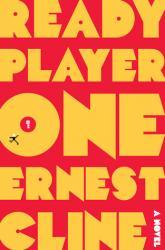
I was given Ready Player One for my birthday. I would suggest this book to readers interested in science fiction and immersive video games. The author writes with surprising detail, going through Wade's thought process and adding twist and turns at each chapter. The author makes semi-relatable characters, fighting to win the ultimate prize. The entire book speaks of the time, heart, and soul the author spent writing a fabulous book.
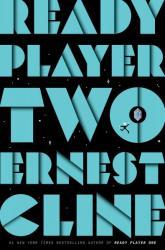
I received Ready Player Two as a gift. I would suggest this book to anyone who enjoyed the first book. Although this book is not as good as the first one, I enjoyed it immensely. Wade hunts down shards for a new Easter egg in the oasis. Wade's compelling character meets new people and gains a completely new quest. Ernest leads you on a journey you don't want to end.
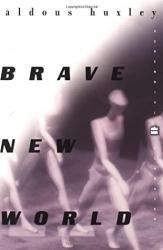
Brave New World is a classic dystopian novel, written in the early 1930s by Aldous Huxley. Set in a society in which humans are manufactured and programmed depending on their assigned social class, it addresses individualism, conformity, and the dangers of complete government control. Citizens in this dystopia frequently take a drug to subdue their emotions, living in a state of ignorance and 'bliss' as they go through the motions unquestioningly. In order to keep the system of manufacturing people running smoothly, certain things are considered taboo--such as literature, religion, and family--while what we typically consider unorthodox is commonplace in this society.
The story follow several central characters who don't completely fit in or believe there could be more to life than what they experience every day. Huxley takes readers to a 'Savage Camp' where John, the protagonist (whose ideals are completely different from everyone else's), is introduced, and the other characters experience an extreme contrast to their advanced and ordered society. Readers experience John's intense internal conflict as he attempts to find his place in the new world into which he is thrust; they also learn more about the ideology of the dystopia, and what goes on behind its 'perfect' facade.
I enjoyed most aspects of Brave New World, and would recommend it to dystopian readers who appreciate a deeper meaning. However, there were some parts of this novel that I found disturbing, as what's considered taboo is the opposite of how we view things in our world. Sometimes I had trouble connecting with the story emotionally, and I would've liked more specifics about how the dystopia came to be. But looking past the negatives, the themes Huxley brings up are very important, and even pertinent to society today. His characters have depth, the underlying themes make readers think, and overall it is an interesting concept of a future world with complete dictatorship. Brave New World is a classic that I believe everyone should read.
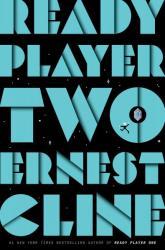
Ernest Cline has written another masterpiece. While Ready Player One could have remained a stand-alone novel, Ernest Cline has given us a better look into his dystopian universe with this sequel. After James Halliday posthumously releases another quest, The High Five must once again unite to solve all of the riddles. However, this time the stakes are higher as the lives of the majority of OASIS users are on the line. With adventures that include John Hughes movies, Prince, The Lord of the Rings, and many more pop-culture references, Ready Player Two is a thrilling action-packed adventure. I highly recommend this novel for any middle school or high school aged reader, or any lover of pop-culture from the later part of the previous century.
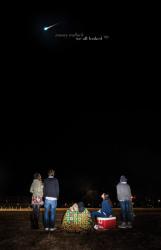
The book We All Looked Up is from the point of view of what would happen if the world was ending very soon. There is no certainty that the world will end but they also can't be sure that it won't. I really enjoyed this aspect of the book, the uncertainty that there is throughout the whole story. I thought the choices the characters made were realistic and that it was all very well thought out and written. I loved how the book made me think about what I would do if I only had a certain amount of time left to live and what I would want to be doing with this time.
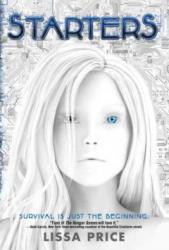
I read this book for school Freshman year of high school. It’s about a girl named Callie who lives in the future where everybody from 20 years to sixty years old has died. Old people can take control of younger peoples' minds, so they can ‘be young’ again. To me, it just felt like a poorly executed variation of the Hunger Games. I wouldn’t really recommend this book as I thought it wasn’t very well-written and had a poorly thought out story-line.
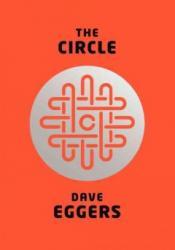
The Circle is an incredibly interesting book. The novel centers around Mae Holland, who sets off to work at The Circle after graduating from college. As she works through her career, Mae starts to question this highly acclaimed tech company and its Three Wise Men. Its main ideas discuss privacy, and specifically, how corporate run privacy standards lead into modern governmental systems. The ideas play into the fascinating world building around Mae Holland and her ideas of digital utopianism. The way she questions mob mentality behind the hive mind that can be global datafication is unique and provides for a great read. While the characters are somewhat lack luster, the novel makes up for it with its social construction and suspense. While there are some plot holes, the holistic concept is incredible. Overall, I would recommend this book to anyone interested in the digital world or dystopian-like settings.
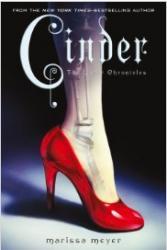
For years, I had heard of The Lunar Chronicles and thought people were referring to the two Sega Saturn video games, Lunar: Silver Star Story and Lunar 2: Eternal Blue. However, seeing as most people haven’t heard of these video games, I eventually figured out that they referred to the Young Adult series of books. While 2012 was definitely around the height of the re-imagined fairy tale craze, I do have to admit that this science-fiction take on these classic stories is a fresh new way of adapting the plots that we all grew up with through Disney movies.
The first book in the series, Cinder, takes Cinderella's down-and-out heroine and updates her to a cyborg unaware of her royal origins. What made this story engaging was figuring out how the standard trappings of the Cinderella story would be adapted to this futuristic setting. Granted, this made some of the plot points more than obvious well before they happened, but I usually ended up smiling at the bits of homage that Cinder paid to its origins—such as a “pumpkin” of a car and the leaving behind of certain footwear.
While the plot was mostly predictable, I appreciated the awkward “teenager” dialogue of the titular protagonist but only to a point. I’ll admit that YA books have a kind of frenetic style that matches their main characters' emotional turbulence, and Cinder certainly reads like a teenage girl replete with the insecurities, slang, and missed steps that a full-grown adult wouldn’t necessarily have as character quirks. The problem is that having to follow such a snarky young individual for so long through the story makes it eventually grate on my nerves, especially when the path she needs to take in her life is so obvious. Then again, perhaps I’m just a crotchety old man who isn’t in-tune with the youth anymore.
A great sci-fi Cinderella retelling, I give Cinder 4.0 stars out of 5.
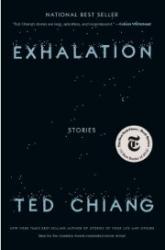
My librarian uncle introduced me to Ted Chiang recently, and I was so intrigued by such an award-winning author who wrote exclusively in short stories that I had to check out one of his books. Exhalation is a collection of these stories, and I can see why Chiang is lauded as a writer. It seems that modern science fiction is too focused on new technologies and how they can lead to utopias or dystopias. In Chiang’s stories, I saw some stark realism that took well-tread topics of the genre and examined them through a lens that was extremely realistic to how society would function with such advancements.
It was refreshing—a sigh of fresh air, or exhalation, if you will—to read stories about parallel universes, artificial intelligence, and time travel that didn’t stick to the same tropes that have made science fiction almost boring in comparison. In the end, Chiang is so concise with his language as to create these universes anchored in our reality and uncover all the intricate ways in which new technologies would change it without delving into the fluff of a full-blown novel. And perhaps that’s what makes these short stories work: focusing on how people interact with new technology, instead of just society at large.
These stories' personal nature hits home, mostly because they were pulled from current technologies and extrapolated into the fringe sciences that are on the cutting edge. For instance, we already record much of our days, so how does our memory change if we have a perfect record of the past? Additionally, how many technologies are made widely available as entertainment first, and how many interest groups pop up as fans of these technologies until they are eventually made obsolete? These and many other thoughtful topics are only some of the reasons I would recommend any fan of true sci-fi read this book.
A collection of some of the best sci-fi stories I’ve ever read, I give Exhalation 5.0 stars out of 5.

A Wrinkle in Time is unlike any Science Fiction novel I have ever read. It is exciting and scientific and even a little romantic like every other science fiction novel, but it grapples with other ideas like how one thing (yet to be revealed) helps to conquer the darkness inside us and all around. It follows Margaret (Meg) Murry in the search for her missing father but at the same time follows a search in understanding herself. She wants more than anything to find her father because he was the one who made her feel like herself and now that he is gone, she feels lost. Her genius younger brother Charles Wallace is a major player in Meg's journey to find herself and in the end is what will trigger the one thing she has that the darkness does not.
I first read this book in third grade as required reading, but since then I have probably read it over ten times. It is one of those books that you get something new out of every time you read it. I have also never read such a creative book. Madeleine L'Engle makes it interesting and unpredictable while at the same time tying in internal struggles. Everyone can relate to Meg and will learn from her struggles by reading this book.
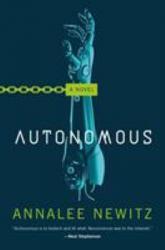
Science fiction often seeks to answer the moral and ontological questions that we’ll soon face in future technological landscapes. When I picked up Autonomous, I was expecting an examination of artificial intelligence and the ability for robots and machines to eventually become sentient. Unfortunately, that was only about half of the book that I ended up reading. The fact that there were two dueling scientific topics in this book made its message muddled, let alone misleading. It really should have been branded/titled as a book about pharmaceuticals and the patent system that holds the healthcare system hostage.
While I’m sure the pharmaceutical elements of this story are accurate (at least in a fictional context), this wasn’t the reason I wanted to read Autonomous. Granted, telling two parts of the story—from the POV of the pirate chemist and from the POV of the law enforcement sent to catch her—was a good way to reveal the plot so that each POV doesn’t know what the other side knows. That being said, the AI element of this story seemed to be relegated to a sub-plot in the law enforcement POV that ended up being disappointing to me.
I’ll grant that realistic characters may not be likable characters, but in the end, I was not too fond of any of the characters in this book—with the AI being the one exception. I didn’t care for the chemist’s messy past just as much as I didn’t care for the clearly homophobic law enforcement officer. Would the “romance” in the story have been different if the AI’s origin was different? Sure, creating morally gray characters makes the story more real, but it ultimately just made me irritated with these individuals. And since the story didn’t know which scientific concept to pursue, the whole idea of the AI being “autonomous” could have been cut, and the plot really wouldn’t have changed at all, leading me to my initial statement that the title of this book is misleading.
A misleading title for a book about pharmaceutical piracy, I give Autonomous 2.5 stars out of 5.
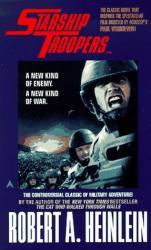
Starship Troopers exemplifies the signature writing style of Heinlein: an outrageous setting that still manages to capture familiar aspects of everyday life. I marveled at the intricate universe Heinlein crafts. He describes every aspect of political relations with alien species and the intricacies of a military that ranges across the stars. The book follows a boy named Juan Rico as he comes of age and joins the infantry. Heinlein describes every aspect of Juan’s life in basic training and the great battles of his career like an ancient epic; sparing no detail and giving elaborate descriptions of the enemies of humanity and the battles in which they were defeated. Starship Troopers is the perfect science fiction novel for someone who is looking for heaps of action combined with drops of philosophy and social commentary, all brought together into one spectacular and dazzling universe.